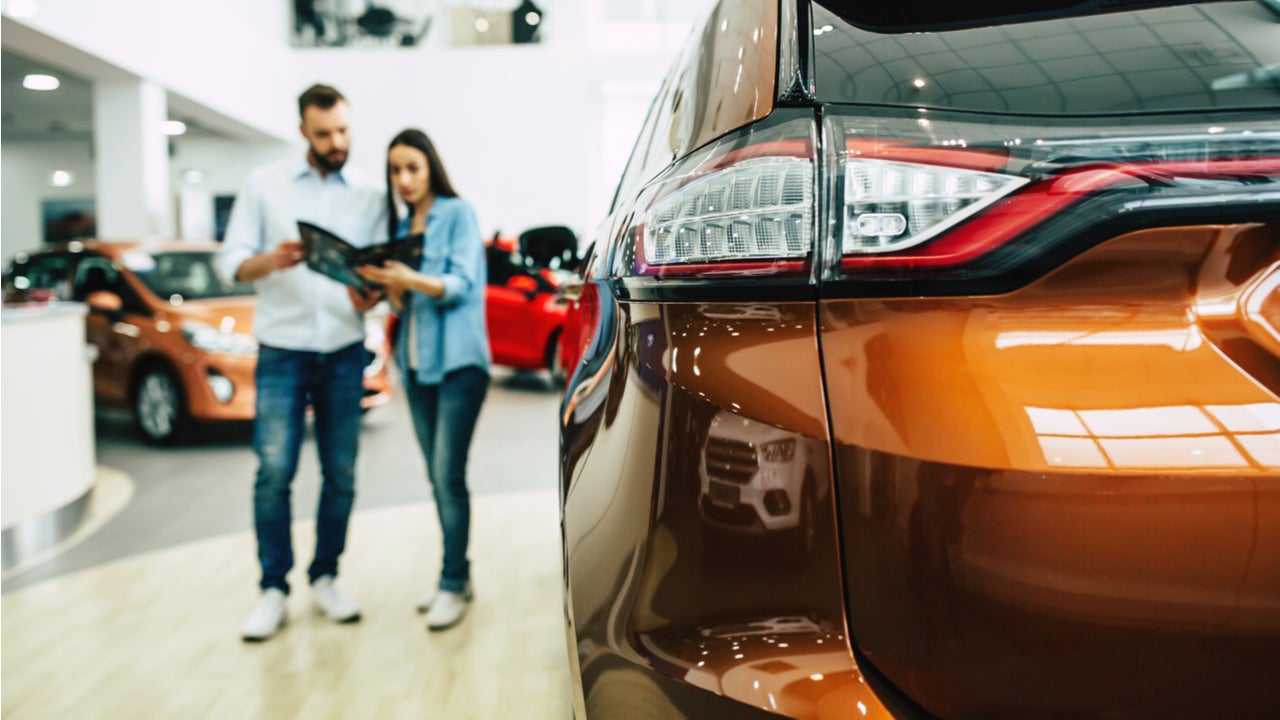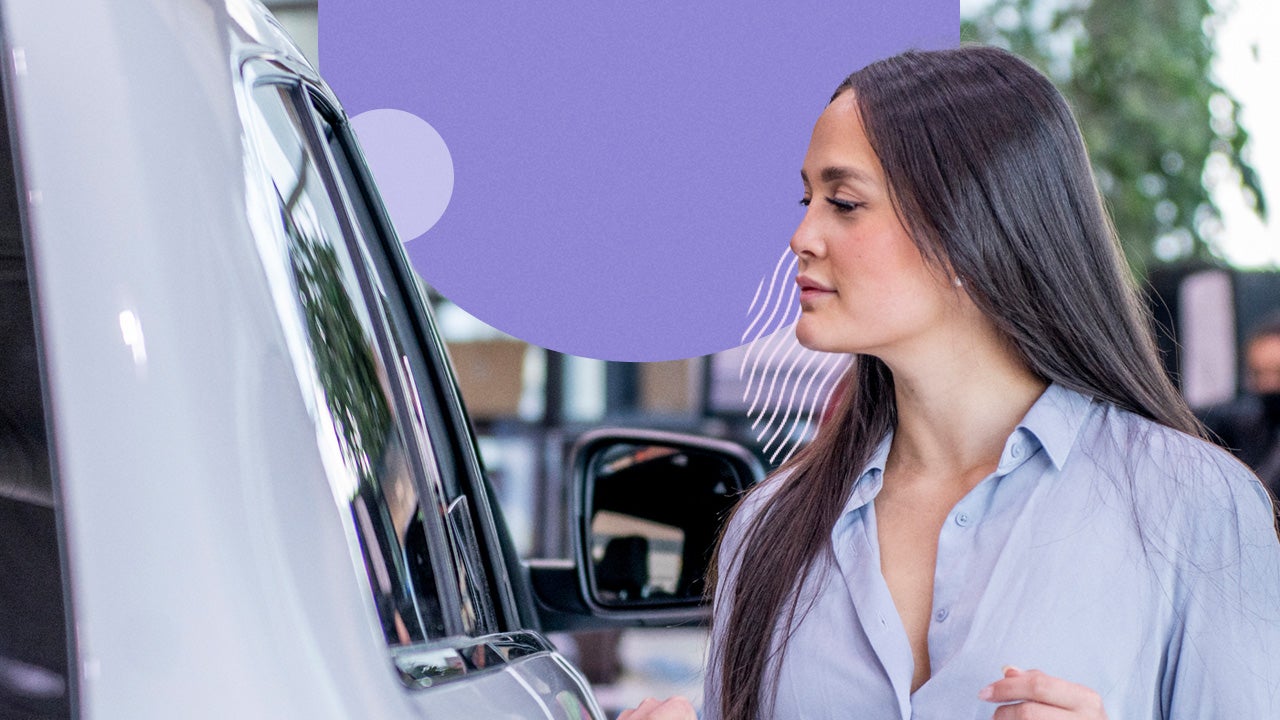5 tips for buying a new car




Key takeaways
- When considering buying a new car, it’s important to consider the monthly payments and other costs such as insurance, maintenance and registration fees.
- Researching and comparing different financing options, such as bank loans and credit unions, may help you score a competitive interest rate.
- Negotiation is key when buying a car, so be prepared with preapproval and don’t be afraid to walk away if the deal doesn’t work for you.
If you’ve spent the past few months dreaming of a new ride in your driveway, you’re probably looking at models, comparing deals and evaluating what add-ons you might want. It’s all important — but before you visit a dealership, you’ll need to consider the total cost of the vehicle, any potential financing options and common negotiation tactics before heading to the dealership. These six tips for buying a car can help you put your best foot forward when buying a new car.
1. Figure out what you can afford
There are a few elements to consider: the total cost, the monthly payment and the most common vehicle ownership costs. A good rule of thumb is to spend no more than 20 percent of your monthly household income on vehicle expenses, including loan payments and all other expenses, like fuel, car insurance, maintenance, repairs and registration fees.
For the monthly payment itself, Edmunds suggests that you should aim for no more than 15 percent of your income. You can keep your monthly car payment in this range by making a down payment. A larger down payment reduces the amount you will need to finance through a loan.
The 20/4/10 rule can be a good approach to figuring out what you can afford. With this rule, you will make a 20 percent down payment. The remainder of the purchase should be financed with a loan term of four years or less. Additionally, the total of your transportation costs should amount to no more than 10 percent of your total monthly income, though some experts suggest this figure can be as high as 15 percent.
Use Bankrate’s auto loan calculator to get an accurate estimate of what you can expect to pay each month and over the life of the loan. The average auto loan rate for new cars was 6.61 percent in the third quarter of 2024, but your interest rate will depend on your finances, credit score and other factors.
Remember that car ownership costs much more than just your initial payment. Use websites like Edmunds or Kelley Blue Book to get a general idea of gas, insurance, repair and maintenance costs in your area.
2. Decide whether you want to buy or lease
Do you want to drive the car as long as the wheels can stay on? If so, buying is the way to go. You have the ability to trade or sell the vehicle when you want a fresh set of wheels. But if you want a new car every three years, consider leasing.
A lease means you might be able to get a more upscale car — leasing instead of buying generally lead to a more affordable monthly payment. The major downside is that you won’t own the car outright. You will also need to look out for costly lease terms, such as mileage restrictions and wear-and-tear fees, to avoid hefty penalties when your lease is up.
Bankrate’s leasing versus financing calculator can help you estimate the potential savings of buying or leasing so you can make an informed decision.
Choosing a certified pre-owned car is similar to buying a new car with a less expensive bill. They are inspected by the manufacturer and sold with a new warranty that you wouldn’t get from a private seller or dealership.
3. Research car options
Finding the best car for you starts with research. Check manufacturer websites and local dealerships, and keep an eye out for any potential discounts. Many automakers offer discounts to students, military members and even members of certain credit unions. These discounts can be combined with any cash-back rebates on the model, which should be deducted after negotiating the price.
Check the automaker’s website for these incentives and discounts before settling on a vehicle. There may be rebates or special APR deals whether you choose to finance or lease. Just be aware that you will need to borrow through the manufacturer’s captive financing company to qualify for most deals.
When you do decide on a car, obtain price quotes from multiple dealerships. Car prices for the same vehicle can vary between dealerships, and some may pad their pricing to add to their profit. In addition, fees vary from one dealer to the next, which will also impact the purchase price.
4. Lock in your financing
You come to the table with more negotiating power if you have a preapproval offer before visiting the dealership. Since dealerships typically receive a flat fee or a commission on the auto loans they facilitate, regardless of whether the loan is from the manufacturer or a local lender, it can lead to less of a deal for you.
Instead of having your dealer do the work, compare auto loan rates with banks, credit unions and online lenders. Start by checking your credit so you know where you stand. It can also be helpful to address any inaccuracies or issues that may be impacting your score. Having these types of errors removed can increase your score and help you qualify for better offers.
When you are rate shopping, keep your applications to a 14-day window. This can minimize the impact of the inquiries on your credit report since multiple inquiries will be listed as one hard credit check. A preapproval offer doesn’t mean you have to borrow from that lender, but it can help you determine which financing option is the least expensive.
When you do decide on a car, obtain price quotes from multiple dealerships. Car prices for the same vehicle can vary between dealerships, and some may pad their pricing to add to their profit. In addition, fees vary from one dealer to the next, which will also impact the purchase price.
5. Check your insurance
Car insurance is another important expense associated with a new vehicle. And depending on the type of car you’re hoping to purchase, prices can vary significantly. Before you buy a new car, get a quote from your current provider so that you have an estimate of how much your policy will change.
In addition, request quotes from other top insurance companies as well. This can help you assess how reasonable one insurer’s quote is compared to another, and it allows you to identify the most affordable and competitive policy.
6. Take charge of negotiations
Once it’s time to sit down and talk about pricing, come prepared with the research you’ve done. See if other dealerships are offering better deals on your vehicle and seek a price match from your salesperson.
Having the vehicle inspected by an independent professional is another important step as you enter final negotiations. This allows you to identify any potential issues so that you can be more informed when negotiating. The inspection may also reveal issues significant enough that you want to back out of the vehicle purchase altogether. While new cars are generally in good condition, an inspection can help you avoid a lemon.
In addition, before you sign the final contract, go over all the details carefully. Common dealer fees to watch out for include vehicle preparation fees, VIN etching, extended warranties, advertising fees and more. If you are interested in any of these services or products, it’s often possible to find them available through third parties for less money.
If you’re looking to trade in your current car, save that discussion for after you negotiate the sale price of your new car. Keeping them separate may help you negotiate a better deal on both.
Mistakes to avoid
Car salespeople are professional negotiators. After you consider some of the best tactics to get a good deal on a new car, avoid making these missteps when you’re at the negotiating table.
- Mixing your emotions and your money: Never buy a car on impulse or the same day you test drive it. Instead, give yourself a few days to think it over. Before you make a final decision, look at all the numbers in the security of your own home where you can make a more rational, analytical decision — and avoid a high-pressure sales pitch.
- Choosing whichever dealership is closest to you: Don’t just go to the dealer closest to home. Ask around, learn from friends’ experiences and research reviews. Dealerships charge based on ZIP code, so the exact same make, model and trim may cost more or less depending on where your dealer is located.
- Talking trade-in too early: Request to negotiate the sale price of your potential purchase first, then talk trade-in. Better yet, compare offers from multiple dealerships. You don’t have to trade your car in at the same place you buy from, so see where you can get the most money out of your current ride.
- Agreeing with the sticker price: The sticker price you see on the showroom floor is rarely the final price you pay. Instead, it is a starting point for you or your trusted negotiator to lower your final cost.
- Not reading the paperwork: Negotiation is only the first half of the hurdles you must jump through at a dealership. The sales team will take you to the finance office afterward. Prepare to be pitched dealer add-ons, like extended warranties, wheel protection, interior protection and more.
One of the most essential aspects of buying a new car to remember is that you are allowed to walk away. You don’t need to close the deal the day you enter a dealership. To stay in control, never hand over your keys or driver’s license before a test drive. Some salespeople hold onto these items to keep you in the showroom for longer.
Ultimately, shopping around will help you feel more comfortable walking away if negotiation isn’t going to plan. Take your time researching vehicles, visiting dealerships to view inventory and securing outside financing. If you can show the salesperson other vehicles you are considering, you can use those alternatives to strengthen your position.
Bottom line
Buying a new car is an exciting process, and there is no better feeling than driving off the lot knowing you got the best deal. But before you search for the perfect ride. Ensure your finances are in order and your credit score is up to par. Otherwise, you’ll be looking into bad credit auto loans, which come with higher interest rates.
Once you have ironed out all the financial details, shop around for the best financing deal so you can negotiate with confidence. Going to the dealership prepared will help you find the most affordable option that works for your budget.




